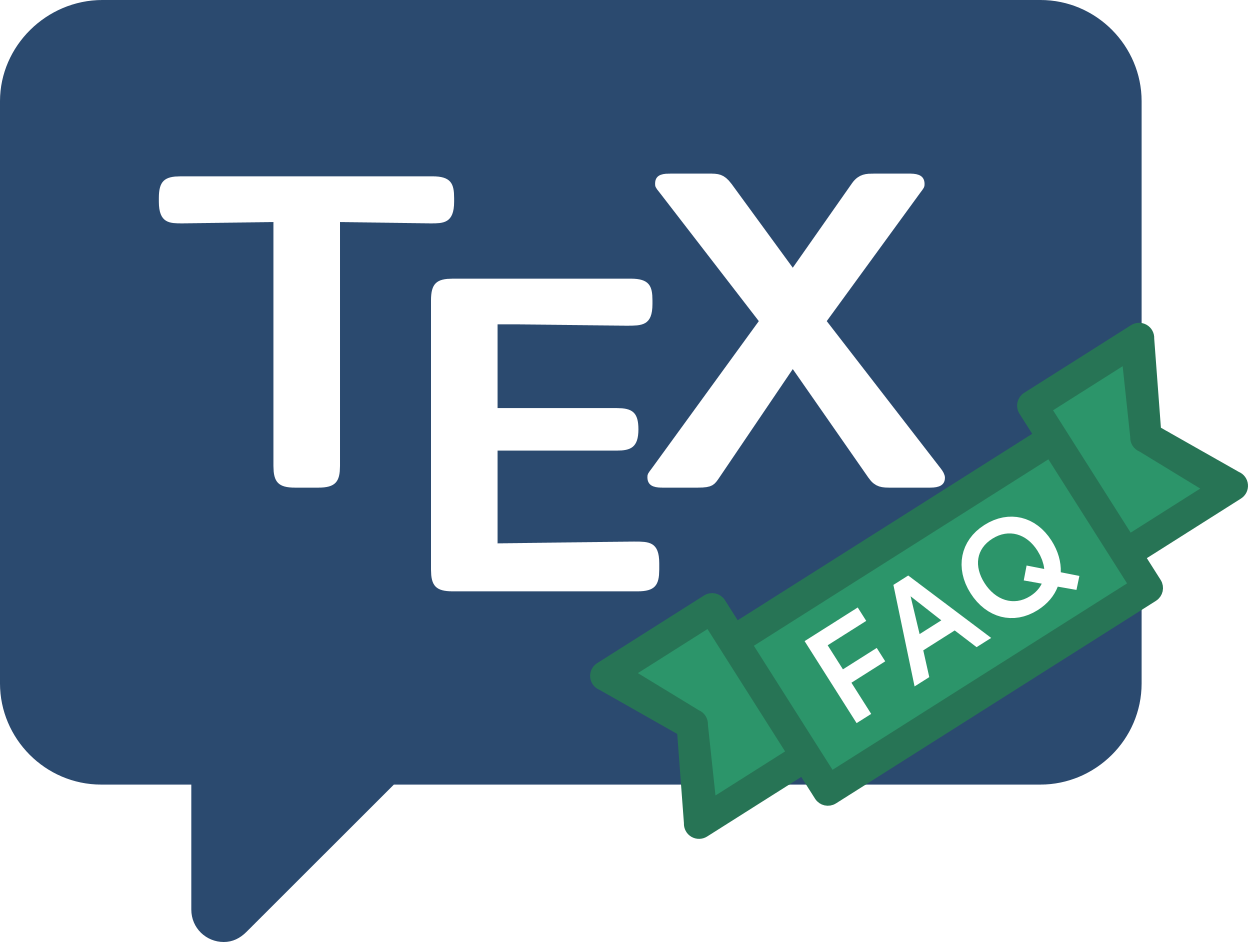
Frequently Asked Question List for TeX
Fonts
Using the Latin Modern fonts
The lm fonts are an exciting addition to
the armoury of the (La)TeX user: high quality outlines of fonts that
were until recently difficult to obtain, all in a free and
relatively compact package. However, the spartan information file
that comes with the fonts remarks “It is presumed that a potential
user knows what to do with all these files”. This answer aims to
fill in the requirements: the job is really not terribly difficult.
Note that teTeX distributions, from version 3.0, already have the
lm fonts: all you need do is use them. The fonts may also
be installed via the package manager, in a current MiKTeX system.
The remainder of this answer, then, is for people who don’t use such
systems.
The font (and related) files appear on CTAN as a set of
single-entry TDS trees —
fonts, dvips, tex and doc. The doc
subtree really need not be copied (it’s really a pair of sample
files), but copy the other three into your existing Local
$TEXMF tree, and
update the filename database.
Now, incorporate the fonts in the set searched by pdfLaTeX,
dvips, dvipdfm/dvipdfmx, your
previewers and Type 1-to-PK conversion programs, by
- On a teTeX system earlier than version 2.0, edit the file
$TEXMF/dvips/config/updmapand insert an absolute path for thelm.mapjust after the line that startsextra_modules="(and before the closing quotes). - On a teTeX version 2.0 (or later), execute the command
updmap --enable Map lm.map - On a MiKTeX system earlier than version 2.2, the “Refresh filename database” operation, which you performed after installing files, also updates the system’s “PostScript resources database”.
- On a MiKTeX system, version 2.2 or later, update
updmap.cfgas described in the MiKTeX online documentation. Then execute the commandinitexmf --mkmaps, and the job is done.
To use the fonts in a LaTeX document, you should
\usepackage{lmodern}
this will make the fonts the default
for all three LaTeX font families (“roman”, “sans-serif” and
“typewriter”). You also need
\usepackage[T1]{fontenc}
for text, and
\usepackage{textcomp}
if you want to use any of the TS1-encoding symbols. There is
no support for using fonts according to the OT1 encoding.
FAQ ID: Q-uselmfonts